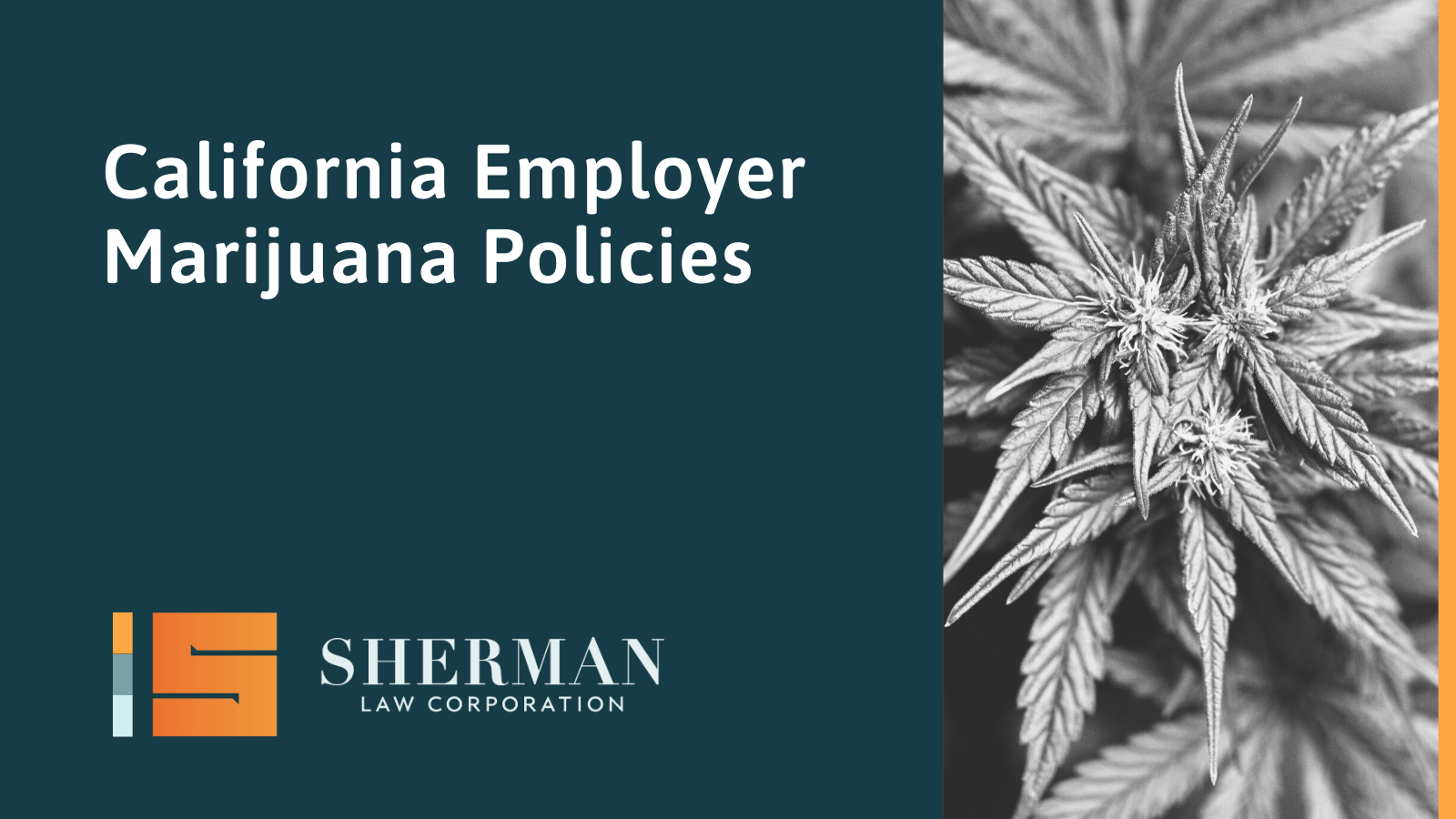
While California’s legalization of marijuana for recreational use by the passage of Proposition 64 last November received a lot of publicity, little, if anything, changes for California employers. However, California employers should update their policies to ensure its employees fully understand this.
Marijuana Under Proposition 64:
Let’s start with the basics. Prop 64, also known as the Control, Regulate and Tax Adult Use of Marijuana Act, establishes “a comprehensive system to legalize, control and regulate the cultivation, processing, manufacture, distribution, testing and sale of nonmedical marijuana products, for use by adults 21 years and older, and to tax the commercial growth and retail sale of marijuana.” The law legalizes the use and possession of up to one ounce of marijuana, the use and possession of up to eight grams of concentrated marijuana and cultivation of up to six marijuana plants.
Employers Can Still Restrict the Use of Pot:
Prop 64 has an explicit carve-out to protect employers. It provides that nothing in the law shall be interpreted to restrict “the rights and obligations of public and private employers to maintain a drug and alcohol free workplace or require an employer to permit or accommodate the use, consumption, possession, transfer, display, transportation, sale or growth of marijuana in the workplace, of affect the ability of employers to have policies prohibiting the use of marijuana by employees and prospective employees or prevent employers from complying with state or federal law.” In other words, if an employer wishes to restrict the use of marijuana in the workplace, it is free to do so, much as it is free to enforce a no-alcohol policy.
Pre-Employment Drug Tests Are Still Up to the Employer:
While Prop 64 did not change the laws regarding the use of marijuana for medicinal purposes, employers still ask whether they are under any new obligations to accommodate those who use marijuana for health reasons. After all, unlike alcohol, marijuana has been shown to help patients battling a lack of appetite, nausea, and even chronic pain. Nevertheless, California law has remained the same since ast least 2008, when the California Supreme Court in Ross v. RagingWire Telecommunications, Inc. held that California’s Fair Employment and Housing Act (“FEHA) does not require employers to accommodate the use of marijuana, even for medicinal purposes. Ross also held that an employer may even require pre-employment drug tests and take illegal drug use into consideration in making employment decisions. Prop 64 does nothing to change this.
Marijuana remains a Schedule 1 controlled substance under federal law. Employers are permitted and in some cases, even mandated to conduct drug tests to ensure that employees refrain from using controlled substances. For example, truck drivers regulated by U.S. Dept of Transportation, are required to undergo drug tests in safety-sensitive positions to determine whether they have recently used marijuana and other substances illegal under federal law.
While the previously illegal status of recreational marijuana made it largely unnecessary for employers to have specific policies aimed at restricting its use at work, the passage of Prop 64 makes it prudent to add rules and guidelines to employee handbooks and policy manuals. Employees may be confused by Prop 64. The explicit clarification of employee responsibilities with regard to marijuana in the workplace may help prevent problems relating to the drug’s legalization before they occur.




